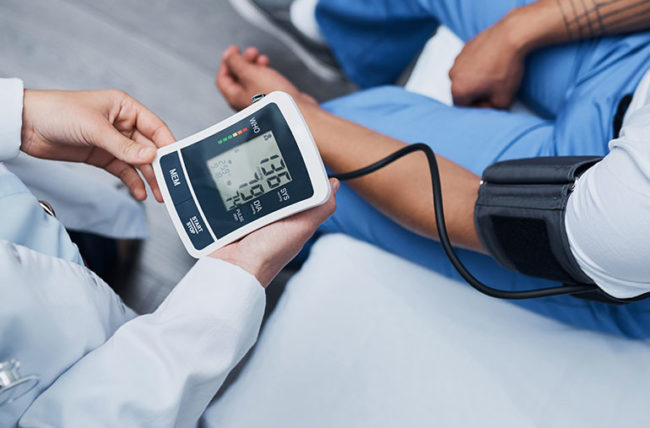
Treating high blood pressure (hypertension) is important. Addressing this problem lowers your risk of heart attack and stroke. Fortunately, there are many things you can do to address this issue and help you to stay healthy. Here are six examples:
Maintain a healthy diet
Eating less salt and increasing whole grains, fruits, and vegetables directly affects blood pressure. People eating healthy food also tend to eat fewer calories - this helps weight loss, which also impacts BP.
Increase Exercise
Every little bit helps. Check with your provider before starting an exercise regimen. If you have concerns about risks such as having a history of heart problems or falls, they can help you put together an exercise plan. Start with a gentle walking program. Then gradually increase your distance. Keep at it and “make it a habit” - this also contributes to weight loss, which, as noted earlier, also helps address hypertension.
Reduce Alcohol
Lowering the amount you drink impacts your blood pressure. Try to limit the amount to one drink daily for women and two drinks daily for men (less is even better). Alcohol has a number of other health risks which are reduced by limiting its use.
Quit Smoking
If you smoke, quitting not only reduces your risk for cancer, heart disease, and stroke, but it also lowers blood pressure! Reach out to your provider for more information on COPC’s Smoking Cessation program if you are interested.
Get Good Sleep
Poor sleep (especially if associated with sleep apnea) can increase blood pressure. If you have concerns about sleep apnea, please talk to your provider about getting tested. Setting a scheduled bedtime, avoiding caffeine, and working on relaxation techniques can all help improve sleep quality and quantity, and blood pressure.
Take Your Medication
If you are on a blood pressure medication, take it as recommended. Report any side effects to your provider so you can work through any issues together or change medication if necessary. Blood pressure medications can be life-saving and life-extending, but they don’t work unless they are taken.
Taking the measures above can help reduce your blood pressure and in turn lower your risk for significant health issues. Please talk to your provider about any questions and bring any home blood pressure measures (along with your cuff) to your appointments if you are being treated for this issue.
